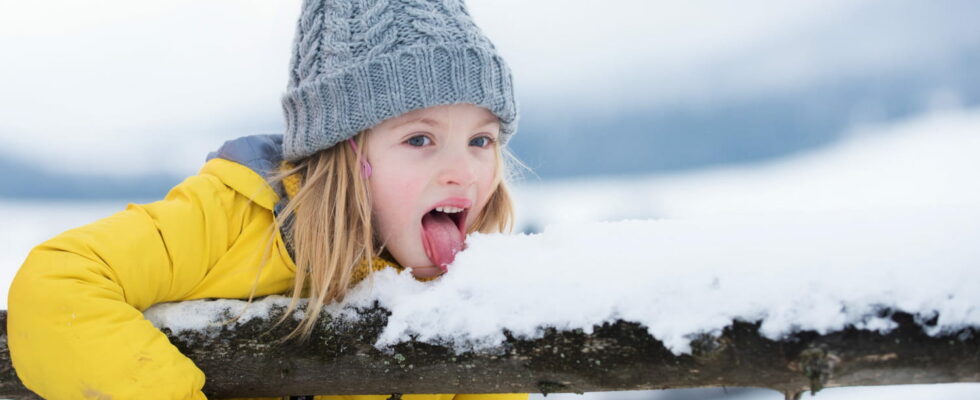According to this pediatrician, letting your child taste snow, even if it “falls from the sky”, is not as harmless as one might think.
During the winter, in the city and in the mountains, many children love to collect snow to play with it, throwing balls or making snowmen. Very often, they end up putting it in their mouth, sometimes even crunching it with their teeth. On their tongue, the freshness of the flakes surprises: some spit it out immediately, while others swallow it without hesitation. Well, some parents have already thought, while watching them do it, that “it’s just rainwater, so nothing dangerous”. However, this is not entirely true…
Indeed, according to pediatrician Catherine Salinier, member of the French Association of Ambulatory Pediatrics (AFPA), whom we interviewed, “Eating dirty snow is potentially dangerous. Because of the bacteria, a child is likely to get sick. And if they eat too much, it will also quickly cool their body.” A scientific study published in 2017 also goes in this direction.
Researchers from the Hungarian University of Sapientia strongly advise against eating the “old one”, especially if it is more than a day old and has fallen into town. They collected snow in a park and on a roundabout in Miercurea Ciuc, Transylvania, and their observation is clear: “very fresh snow contains very few bacteria. But after two days, there are dozens of bacteria”explains one of them. In addition, the flakes also capture polluting particles present in the air, which accumulate there.
Furthermore, snow can also have an unpleasant effect on children’s teeth, because it “causes some thermal shock”explains the pediatrician. She adds that “It’s all a question of keeping the snow clean. In ski resorts, for example, wild animals can relieve themselves in the snow.” To avoid these risks, it is therefore better not to eat snow at all, even in small quantities.
